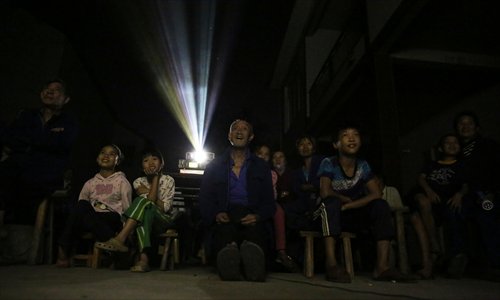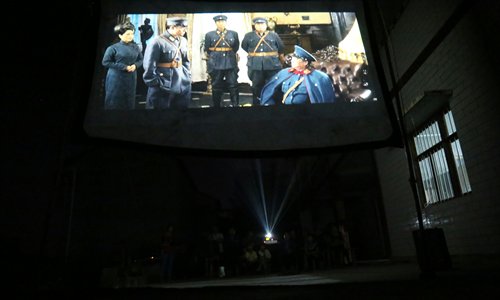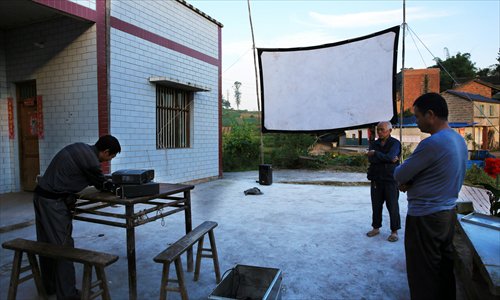The last picture show
With a projector and reels of film hanging off the bamboo pole balanced across his shoulders, He Dayin, 52, panted as he trudged through a bamboo forest outside a village in Luzhou, Sichuan Province. He is on his way to the next village to show films to the residents there.
He is a movie projectionist in Fenshuiling town, and is one of thousands of projectionists in China's rural areas, where cinemas are hard to find and where people have little access to film. Over the past 24 years, He has been to over 200 villages in 14 towns in his county, and screened over 20,000 films there.
China is on its way to overtake the US as the world's largest film market, as movie theaters mushroom in its cities and towns. Rural areas, however, have largely been an untapped market. Villagers are used to seeing films brought to them for free by projectionists like He.
Outdoor cinemas can be traced back to the early 1950s, when China started to take films to the countryside through mobile cinema units, usually small teams equipped with simple equipment.
By the 1960s, the country had a network of over 14,000 mobile film units that showed revolutionary movies to farmers. Local officials also used the screenings as an opportunity to promote central policies and agricultural technologies. In the late 1970s, when He was a teenager, he joined his village's mobile cinema unit and started to develop an obsession with film.
After the team was dismissed in 1990, He went to Shenzhen and became a migrant worker. That same year, he lost one of his arms in an accident at work. After he returned to his village, He used his compensation to buy a second-hand film projector, and became a projectionist.
In the late 1990s, the Chinese government launched the 2131 project to revive the old tradition of mobile cinemas. 2131 means three one's - one film, one village, one month, in the 21st century. He was officially appointed his area's projectionist.
In recent years, however, as cable television and the Internet made their way into more rural homes, and as more villagers leave their home to work in cities as migrant workers, mobile cinemas have lost some of their appeal. "Now fewer people in villages watch the big screen. I feel a bit sad. But that won't stop me from doing my job," He said.
Global Times

Villagers are thrilled as they watch a motion picture. Photo: IC

He fiddles with his old film projector at home. Photo: IC

He Dayin walks through a bamboo forest, carrying his projection equipment. Photo: IC

A film is shown in the evening outdoors. Photo: IC

He erects a makeshift screen and tests his projector in a village. Photo: IC